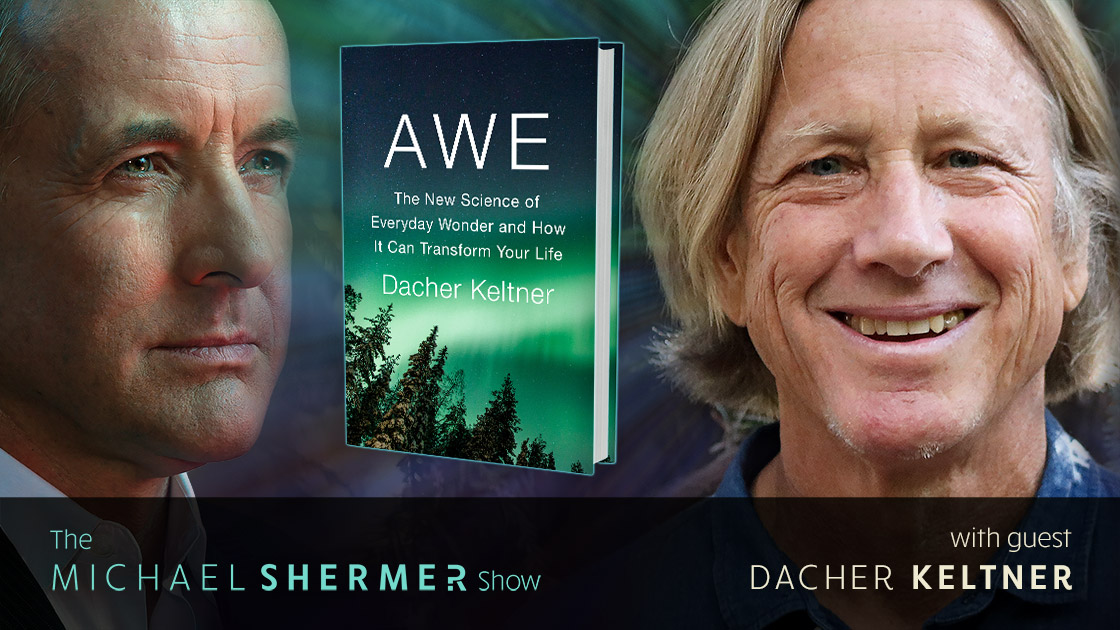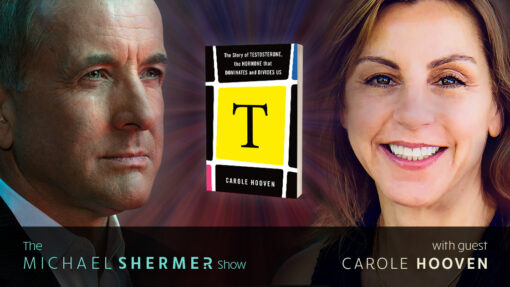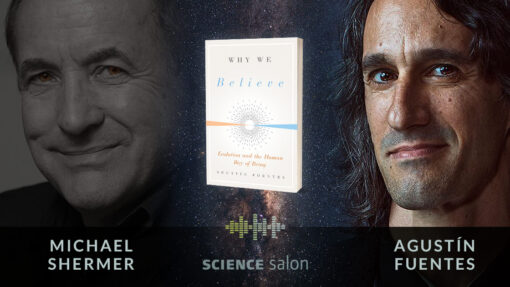While many essays have addressed the social events and psychological traits that drive polarized thinking, the neural underpinnings of uncertainty and polarization are largely unknown. We know the brain processes information and makes decisions, but we know little about how politically polarized information is encoded, and even less about how attitudes about uncertainty influence that processing. Why is it important? In this article Natasha Mott explains that uncertainty may be seen as a threat, which moves individuals toward certain positions…
Tags
-
browse by topic
neurobiology
Political Polarization: Uncertainty and the Neurobiology of Why We’re So Divided
Dacher Keltner — Awe: The New Science of Everyday Wonder and How It Can Transform Your Life

Shermer and Keltner discuss: the death of his brother and how this led to his study of awe • an operational definition of awe • the reliability (or unreliability) of self-report data in social science • how to quantify and measure the experience of awe • What are emotions and how can they be measured? • How has the scientific understanding of emotions changed? • predictors of awe: nature, music, art, dance, movement/exercise, love & friendships • awe in moral…
Carole Hooven on T: The Story of Testosterone, the Hormone that Dominates and Divides Us

In episode 204, Michael Shermer speaks with codirector of undergraduate studies in the Department of Human Evolutionary Biology at Harvard University, Carole Hooven, PhD about testosterone. While most people agree that sex differences in human behavior exist, they disagree about the reasons. But the science is clear: testosterone is a potent force in human society, driving the bodies and behavior of the sexes apart.
eSkeptic for August 28, 2021
In episode 204, Michael Shermer speaks with codirector of undergraduate studies in the Department of Human Evolutionary Biology at Harvard University, Carole Hooven, PhD about testosterone. While most people agree that sex differences in human behavior exist, they disagree about the reasons. But the science is clear: testosterone is a potent force in human society, driving the bodies and behavior of the sexes apart.
Agustín Fuentes — Why We Believe: Evolution and the Human Way of Being

Why are so many humans religious? Why do we daydream, imagine, and hope? Philosophers, theologians, social scientists, and historians have offered explanations for centuries, but their accounts often ignore or even avoid human evolution. Fuentes employs evolutionary, neurobiological, and anthropological evidence to argue that belief — the ability to commit passionately and wholeheartedly to an idea — is central to the human way of being in the world.
eSkeptic for November 24, 2020
Why are so many humans religious? Why do we daydream, imagine, and hope? In Science Salon # 144 Michael Shermer speaks with Agustin Fuentes about his new book Why We Believe: Evolution and the Human Way of Being.
Brain, Mind & Consciousness Conference 2005
The Brain, Mind & Consciousness conference, on what Nobel Laureate Francis Crick called “the greatest unsolved problem in biology,” was held over the weekend of May 13–15, 2005 at Caltech. Watch the entire conference for free in three sessions (approximately 7.5 hours over 3 videos).
SKEPTIC App
Whether at home or on the go, the SKEPTIC App is the easiest way to read your favorite articles. Within the app, users can purchase the current issue and back issues. Download the app today and get a 30-day free trial subscription.








